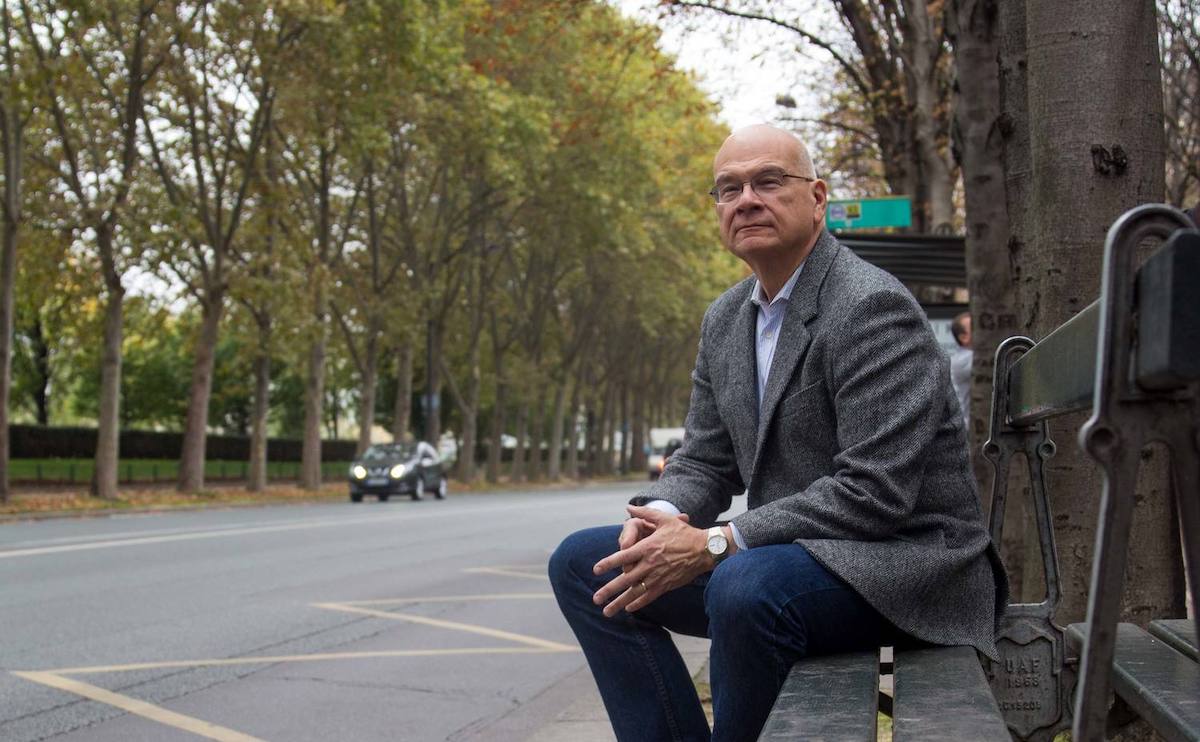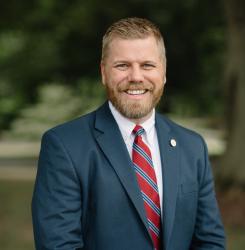Billy Graham was often called “America’s Pastor.” Throughout the 20th century, few rivaled his spiritual influence over the nation. But as we slink into the 21st century, its seems that the pastor for our day is Timothy Keller. Collin Hansen, who serves as vice president of content and editor-in-chief for the Gospel Coalition, captures the life of Keller in his new biography, Timothy Keller: His Spiritual and Intellectual Formation. Hansen is just the right biographer, as he knows Keller from their work together on the Gospel Coalition, which Keller co-founded and which has blossomed into an important voice for Christian cultural engagement.
The theme of the book is influences. Each chapter traces the intellectual and spiritual tributaries feeding Keller’s life. The book is balanced, giving equal measure to every stage of his journey. It begins with the formative influences of his childhood (1950–72). Born in the crucible of fundamentalism and social activism, his upbringing was shrouded in legalism. His mother, Louise, demanded moral perfection, which, combined with the fact that he was a social “wallflower” and often bullied, lead to struggles with loneliness and internal self-criticism. But he also adapted, slowly nurturing the art of conversing with difficult people.
As a teenager, he attended confirmation classes at a Lutheran church, which planted seeds of a gospel of grace that would flower in the coming years. He attended college at Bucknell, an institution lost to the “day’s fashionable academic trends,” and struggled with his faith amid the arguments of social progressives. Through his work at InterVarsity Christian Fellowship, friends such as Bruce Henderson and others, and the writings of C.S. Lewis and Martin Luther, he was compelled to repent of his sins and follow God.
During college, he met the love of his life, Kathy Kristy, whom he affectionately calls “Kathy the Valiant.” She was on her own spiritual journey alongside Tim, and they served in everything together. His work at InterVarsity inspired his zeal for evangelism, and he was drawn to what Hansen calls “an especially thoughtful stream of evangelical Christianity.” At this stage Keller began cultivating the virtue of study that would define his whole ministry career. The initial docents who guided his pilgrimage included thinkers such as John R.W. Stott, C.S. Lewis, and J.I. Packer, and he never strayed far from these figures.
Hansen then turns to the intellectual and spiritual formation of Keller’s seminary years (1972–75). Here we see Keller’s theological influences coalesce into a ministry vision. Like gathering small portions of dishes at a church potluck, Keller drew from the “theological smorgasbord” of past and present Christian theologians, such as Elizabeth Eliot, Roger Nicole, and Richard Lovelace, who taught him about suffering, neo-Calvinism, and spirituality. Alongside these he learned from Jonathan Edwards to unite “a desire for the mystical experience” with logic that was “fired with captivating illustrations.” Hansen summarizes this theological feasting: “By his 1975 graduation from Gordon-Conwell, most of Keller’s enduring theological commitments had been settled.”
Part 3 of the book turns toward his early pastoral ministry (1975–89). His first pastorate was in Hopewell, Virginia, at West Hopewell Presbyterian Church. In this small town, he realized quickly that his preaching needed to become “more concrete, clear, and practical.” Hopewell also taught him how to “shepherd all the sheep God has entrusted to him.” During this season, he preached three times a week: Sunday morning and evening and Wednesday evening. He became a voracious reader, poring over the scriptures. By the time he was 34, “Keller had already preached more than 1,500 sermons, covering about three-fourths of the Bible. He had preached as much in nine years as many pastors do in a lifetime.”
During this period, Keller pursued a steady diet of theological works that helped him cultivate his distinctive preaching voice, from such figures as Edmund Clowney, Martyn Lloyd-Jones, Edwards (again), Dick Lucas, George Whitefield, and R.C. Sproul. He also enrolled in the doctor of ministry program at Westminster Theological Seminary, learning evangelism from Jack Miller, missions from Harvie Conn, and preaching Christ from the Old Testament from Clowney. Lints’s Fabric of Theology also imparted to Keller a vision for a contextual theology that shaped the ministry at Redeemer.
Finally, we encounter the Keller we all know (1989–present): the New York City pastor who thrived in a hostile city. The church was born out of the work of Nancy DeMoss, who hosted dinners for eclectic groups interested in Christianity on the Upper East Side of Manhattan. Keller was not interested in attracting Christians—he wanted to reach skeptics and unbelievers, so he refined the art of listening. After patiently listening to their objections to Christianity, he read, studied, and responded.
Hansen describes the early years of Redeemer as the “land of yes.” Marked by the chaotic excitement of new initiatives, Keller worked to find the right people and then set them free to minister. These were intense years, more trying than any previous seasons, but the fruit produced something unique: a church that combined “social concern” and “spiritual renewal.” In less than 30 months, Redeemer’s attendance grew from the handful who had attended the original prayer meetings to more than a thousand. But the story here is not the numbers, nor even the personalities. Those gathered around Keller sensed that God was at work. Redeemer nurtured a culture marked by “irony, charity, and humility,” virtues embodied in the pastor and that shot through the congregation, a mixture New Yorkers found compelling. The key to success, Keller argued, came down to character. No pastor is skilled in every area of preaching, teaching, counseling, evangelism, and so character “must make up for where leaders fall short in their gifting.” Then, in 2005, he and D.A. Carson hosted several dozen pastors from across North America in what became the origins of the Gospel Coalition, which worked to build an interdenominational community of churches and pastors centered on the gospel.
In the final years of his ministry at Redeemer, before his retirement, Keller shifted his evangelism and apologetic strategy. His two key apologetic books, Reason for God and Making Sense of God, mark this transition. The former offers a classic approach to apologetics that appeals to reason, while the latter discusses the new kinds of moral questions skeptics were asking. This approach was honed at the Dogwood fellowship gatherings where Keller encountered James Davison Hunter and others who discussed the works of Charles Taylor, Alasdair MacIntyre, Philip Rieff, and Robert Bellah. He applied these works to new strategies of cultural engagement in books like How to Reach the West Again and Preaching: Communicating Faith in an Age of Skepticism. These thoughts also coalesced in his lecture for the Kuyper Prize from Princeton Theological Seminary. While Keller was certainly deserving, social pressures from those who deemed him too conservative led the seminary to rescind the award. Yet Keller delivered the lecture anyway. This is where the story of influences concludes, but it is certainly not the conclusion of Keller’s influence.
Hansen’s biography gives a panoramic view of Keller’s life. At each stage, the reader encounters new figures who providentially steer Keller in certain intellectual and spiritual directions. At book’s end, the reader can take in the whole and wonder at the work of God over the span of time. It is too easy to get caught up in the minute, to criticize one sermon, one book, one interview, or one tweet. But journeying from his early years to the work of Redeemer on the streets of New York City, we can see “God’s mysterious providence” in the tapestry of influences.
This is not a critical biography. Hansen recognizes that in time others will evaluate Keller’s legacy. As sure as the sun rises, history will judge us all. But Hansen’s biography provides a snapshot of a faithful minister of the gospel and the path that guided him throughout his life of study and ministry. There is also more going on here than mere “influences” of the intellectual or spiritual sort. The death of Keller’s brother William and the events of September 11, 2001, exemplify the kinds of personal and societal events that shape us, sometimes in imperceptible ways. In Keller’s life, we can see a pastor embody the struggle between Christ and culture but who embraces a willingness to face tough questions with grace and fortiude.
Reflecting on his life, I find much of Keller’s proposal for cultural engagement compelling, but not all of it. And perhaps that is the point. Keller has received his share of criticism from inside and outside the church. Much of this critique, it seems to me, has more to do with postures toward cultural engagement. Theologians haggle over strategies that diverge between styles of engaging the secular world versus policing doctrinal boundary lines. This tension is not unimportant; rather, it is so important that we must remember to celebrate the strengths of every healthy approach to ministry in this age.
We are not prophets. We do not know what the coming years have in store for the church. I agree with Keller that we are living in a cultural moment that resembles a Tolkien dyscatastrophe: that point in a story when all hope seems lost. At the same time, with Keller (and Tolkien) I can see that even in this world, the gospel is a eucatastrophe, the “joyful catastrophe, the tragedy that turns out to be triumph, the sacrifice that turns out to bring joy, the weakness that ends up being strength, the defeat that ends up being victory.” There is always hope in the gospel. May “God’s mysterious providence” raise up many more like Timothy Keller, with a resolute commitment to engaging the culture for Christ.

